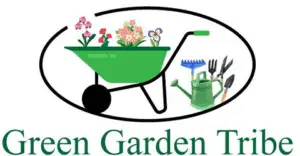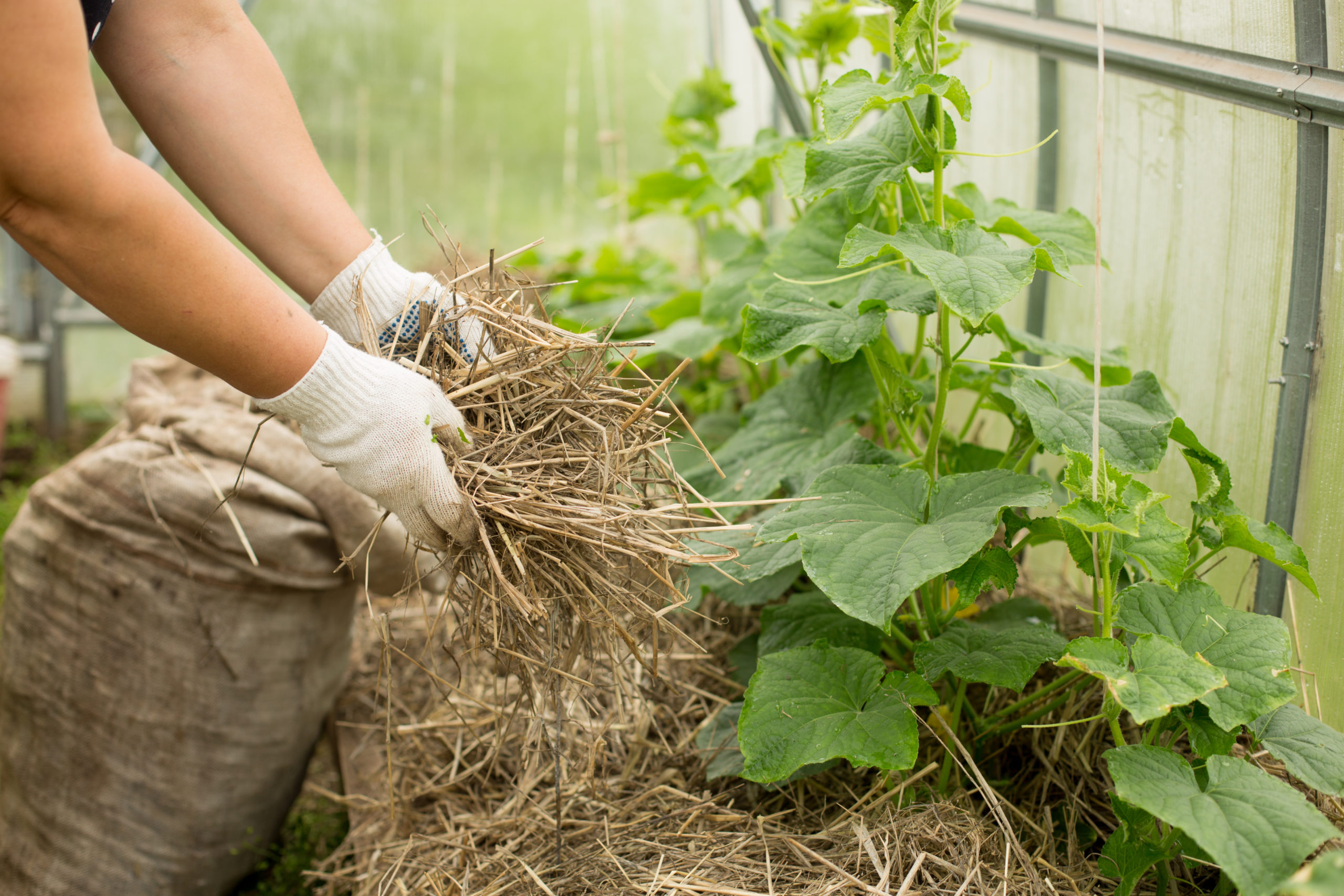If you’re planning on having an awesome garden, you may be wondering if you can use mulch instead of soil. Before doing so, you’ll need to know the difference between mulch vs soil.
Is mulch better than soil? Garden soil is used for growing plants. It’s improved by aged manure or compost for added organic material and nutrients. Mulch is a soil cover. It prevents erosion, retains moisture, and shields soil against temperature changes. Most gardeners prefer soil, but fine mulch does have its uses.
Can you Use Mulch in Place of Soil?
Most gardeners plant in soil and spread a layer of mulch on top of the soil – typically around the plant but not exactly covering it.
Experienced gardeners are not keen on planting in mulch or using mulch to replace soil.
Mulch holds moisture and protects the roots of the plant from extreme temperatures. As it decomposes, it enriches the soil.
These are the benefits to plants with mulch surrounding their base.
On the other hand, mulch blocks sunlight and air (important ingredients that make plants grow) from getting to the soil, thus any plant that tries to grow through mulch will have a difficult time.
Can plants grow through mulch? It depends on what plant.
Seeds. Burying seeds in mulch will give them lesser chances of growing than seeds planted on soil. They will also not sprout if you cover them with mulch. Seeds will not also do well when cast over mulch.
Mulch is tough and fibrous and will not give the seedling a good place to develop roots.
Plants from seeds will grow in a mulched garden if you allow the seeds to sprout in an indoor pot. Once they have grown to be a few inches tall, you can replant them to your mulched garden.
Bulbs. Bulbs can grow through mulch because they have stored energy. Keep mulch up to only two inches in depth, because any more than that may cause the plant to die before it goes through the surface.
Mature plants. Mature plants buried under the mulch will die.
Perennial crown plants. Asparagus, for example, grows crowns below the surface. It dies every year but always sprouts back.
A mature Asparagus plant can sprout through up to six inches of mulch because it has well-established crowns.
Flowers. There are flowers that can grow through mulch. Seeds and small annuals have a low chance of growing. Bulb flowers can sprout when mulch is just a thin layer.
Mulch-only Gardens
Most plants struggle to grow through mulch. It, is, however, worth a try to experiment with mulch gardening. You may be able to plant begonias, petunias, marigolds, or annuals directly in mulch.
When you plant directly in mulch, you will need to water frequently because moisture will drain through mulch quickly.
Plants need the stability that soil provides so they can survive and thrive, which mulch cannot provide so many plants will die.
Plants in mulch-only gardens will not be able to draw essential nutrients from the soil. If you want to give mulch gardening a try, remember to water frequently because your garden will not have soil to hold moisture.
You should also check on the plants often in your mulch-only garden, especially during dry and hot weather.
If you want to try mulch only gardening, you will need to use at least 8 inches of mulch, thus, mulch only gardening can be expensive.
What is Mulch?
Mulch is used to cover the soil in your garden. It is placed on top of the soil and not mixed with soil.
Mulch provides a lot of uses:
• Water and wind can wash away garden soil together with the nutrients they contain. Mulch prevents soil erosion.
• Mulch prevents water in the soil from quickly evaporating on a dry, hot day because it retains moisture in the soil.
• Weeds, just like any plant in your garden need sunlight, water, and nutrients. You, however, do not want weeds in your garden.
Mulch covers up the seeds of weeds, so they don’t get sunlight or water.
Also, mulch doesn’t contain the same amount of nutrients as garden soil does so it will be difficult for weeds to grow.
• Mulch helps regulate soil temperature in your garden, so it acts as some sort of an insulator.
On hot days, the mulch will heat up faster than the soil below it so it will prevent your plants from quickly getting too hot.
Mulch traps heat during cold days allowing the soil to cool down slowly.
This will protect your plants from damage or death from frost during late spring and early fall.
Mulch Also Has Many Disadvantages:
• Mulch should be replaced every season.
• Windy conditions can blow away organic mulch.
Mulch is made from organic or inorganic materials, although some refer to mulch as purely made from organic materials.
Some of the most used organic materials for mulch include:
• Compost
• Wood chips
• Shredded wood
• Shredded leaves
• Tiny pieces of tree bark
• Straw
• Paper
• Cardboard
• Grass clippings
Some inorganic mulch materials include:
• Gravel
• Stone
• Landscaping fabric
You can mulch anywhere in your garden, even in potted plants. You can likewise mulch anytime throughout the year.
Remember to lighten the mulch layer during spring. Spread mulch on moist soil during summer. In winter you need to loosen the soil before mulching.
Gardeners love mulch as a soil cover because it’s a simple material that can do a lot of great things for your garden.
What is Soil?
There are two types of soil for landscaping – garden soil and topsoil.
Garden soil is soft and well-draining. It is also a nutrient-dense soil where plants, including vegetables, can thrive. It is improved by topsoil.
Gardeners cultivate garden soil to make it suitable for plants to grow and thrive by:
• Sifting soil to get rid of debris such as sticks, rocks, soil clumps, and roots.
• Adding supplements, such as fertilizer, for added nutrition; Sulfur and lime to adjust the pH.
• Adding aged manure or compost for more nutrients and organic matter.
• Rotating crops every planting season to avoid plant diseases and nutrient deficiencies.
Garden soil is used to fill plant containers including grow bags and pots. Well-cultivated garden soil is an ideal environment for young seedlings during the development stage and for mature plants after germination.
Also, be used in raised beds, garden soil can be improved with aged manure or compost. This mix will allow your plants to grow well. Raised beds are ideal if your soil drains slowly.
Topsoil is to be applied on top of garden soil. It is typically a calculated mixture of sand, clay, and silt. Rich in nutrients, it is needed by plants to grow and survive. There are specific blends of topsoil depending on the plants they should provide nourishment.
When you are deciding over mulch vs soil, you may go for the soil because it is already in your yard. But using soil also has some disadvantages. The sun and wind dry out soil quickly leaving your plants thirsty. Weeds also love to grow in bare soil.
Final Thoughts
It may be difficult to plant seeds in mulch. It is, however, worth a try because you may be surprised that it works.
Using fine mulch gives better chances of success because coarse mulch will not support the seedlings much, that is if they even germinate.
Is mulch better than soil? In the discussion of mulch vs soil, most gardeners prefer to plant in soil feeling that it has many more advantages, and they have always used soil.
However, in a constantly changing world, some people have given fine mulch a try and found that despite the many differences in soil, it can work if you follow the rules. That’s for you to decide!
Jenny Marie
Tribal Writer
Edited By
Patricia Godwin

